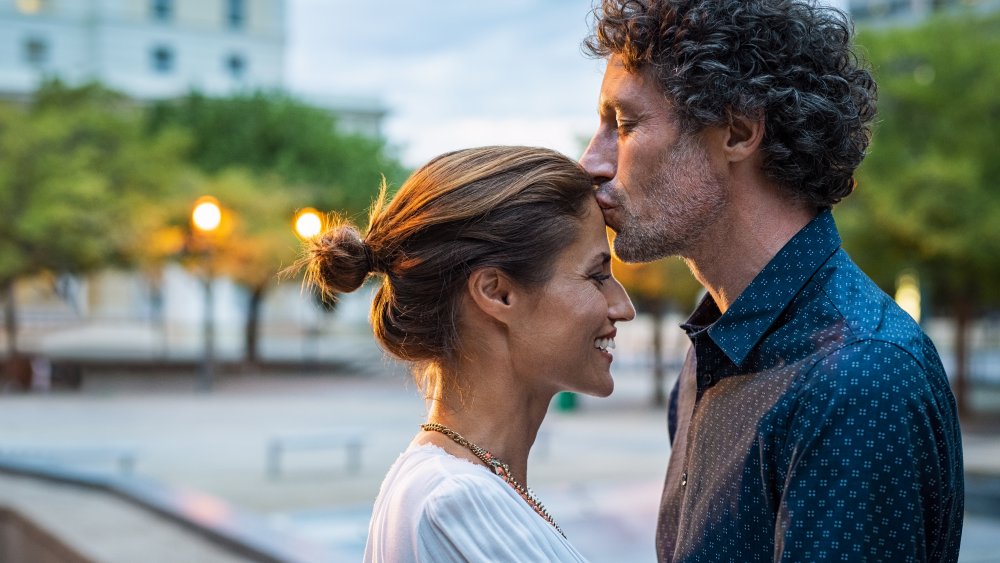Can You Really Fall In Love At First Sight?
Brrrrrr....it's cuffing season! This is the magical time of year when singles are feeling the love of the season, and the chill in the air makes coupling up the primary goal of romantics looking for a cuddling companion for the winter months (via Psychology Today).
Blinded by the desire for companionship and the physical desires that go right along with it, it's easy for hopeless romantics to mistake love for lust in the quest for "the one," and a study out of the University of Groningen in the Netherlands from 2017, confirms just that. Singles that believe they have experienced love at first sight just so happen to have found it with people who they find very attractive, and couples who claimed to have fallen for each other instantly not only reported a more passionate start to their relationships than other couples, but they also are more likely to mistake love at first sight as what researchers have coined as a "positive illusion" — couples in love are more likely to believe they fell in love instantly because of how they feel for each other right now (via Discovery and Insider).
In a nutshell, according to science, love at first sight is really just couples in love remembering their meet cute with rose colored glasses, and for singles, it's likely just that rush of lust from immediate physical attraction, but, since the actual "science" of love is so much more complicated, if people believe love at first sight is possible, doesn't that make it real (via Harvard)?
More men than women believe in love at first sight
According to a survey from 2017, by dating site Elite Singles, 61 percent of women, and a whopping 72 percent of men believe in love at first sight (via Harper's Bazaar). At first it seems totally shocking that guys are seemingly more idealistic than women, especially since the societal trend is to label women as hopeless romantics that spend much of their single life dreaming of finding their Prince Charming, in actuality, women are much more guarded about love than men. In a 2011 study published in The Journal of Social Psychology, men not only fall in love faster than women, but they also express feelings of love faster than women despite having a fundamental belief that it's women that fall faster! You read that right — men think women fall first, but they don't.
Not surprisingly, the Elite Singles poll seems to confirm that concept. The survey did clarify, however, that millennial women are more likely to believe in the possibility of being struck by Cupid's arrow, with 90 percent of women between the ages of 18–29 believing in love at first sight compared to the much lower 56 percent of women between the ages of 30–39. It's obvious that with age comes experience, and the reality of a successful relationship, regardless of how quickly a couple falls for each other, is that love isn't necessarily a fairy tale that ends in happily-ever-after just because you say "I love you." That's when the hard work actually starts!
More people believe in love at first sight than have actually experienced it
Back in 2015, dating site, Match.com, conducted a survey of 5,000 singles in the US and found that the number of people who believe in love at first sight, and the number of people who have actually experienced it are very different. Only 41 percent of men and a measly 29 percent of women claim to have actually experienced insta-love with another person (via Wall Street Journal).
It seems that when it comes to love, the recurring theme is belief and hope. People believe in love at first sight, and they have hope that it will happen to them. Whether the influence is simply the innate biological desire to connect with a partner on a physical and emotional level or it's the influence of romance in movies and books that inspires the idea that there might be a person who is destined to love you without rhyme or reason, it doesn't really matter. If love happens like a marathon or a lightning bolt, it only matters that it happens and that it's shared.


